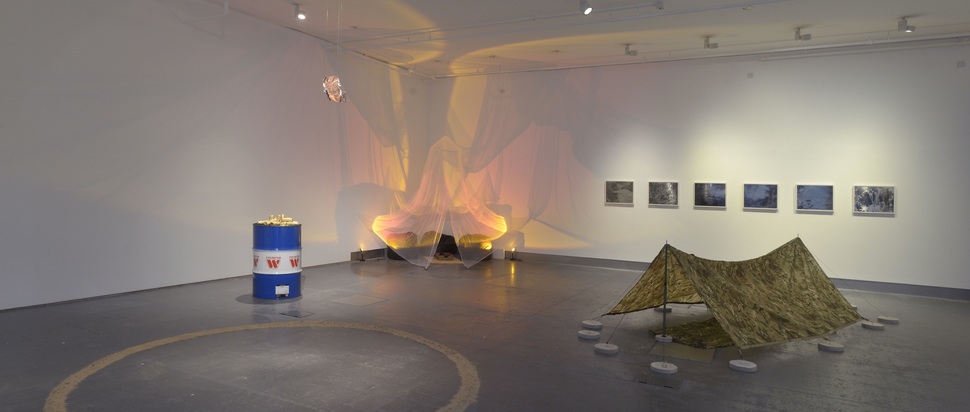Dreaming New Landscapes: Interview with Shalmali Shetty
After a busy 2023, curator, writer and artist Shalmali Shetty reflects on her experiences of living and working between Scotland and India, her international curatorial projects and how the Glasgow arts community has welcomed her
Shalmali Shetty is speaking to me from her home in Mangalore, India, in the midst of putting together a new exhibition which opens this month. Shetty graduated from The Glasgow School of Art in 2020 with an MLitt in Curatorial Practice and since then has been moving between Scotland and India, working in an array of roles. On top of being an independent artist, writer and curator, she is currently supporting producer for My Body Remedy, a community resource which centres physical practice for self-recovery through workshops, residencies and opportunities for creative development founded by Mele Broomes. She is also a producer for Glasgow-based artist and performer Christian Noelle Charles as well as a trustee at Outpost Gallery in Norwich.
You are a memory, I am your shadow was Shetty’s curatorial debut and took place in September this year at The Glasgow School of Art’s Reid Gallery. The exhibition worked from Shetty’s manifestation of dreaming as a way of moving through liminal and transitional spaces. This expanded to feature the works of six UK-based creative practitioners who were in dialogue with the idea of dreaming as liberation within the self and wider political contexts. Alongside works by Ashanti Harris, Asuf Ishaq, Michail Mersinis, Nadia Zhaya and Arthur Start, the preview night of the exhibition featured a performance by Mele Broomes titled Siblings with sleep paralysis: a vocal and choreographic talk, which centred around a conversation between Broomes and her sibling about their ongoing experiences of sleep paralysis. Shetty tells me: "Dreaming is the only space where you're actually able to do so many things that are not otherwise possible. It's that liminal sort of living, that in-between understanding of the past, present and future; life and death; sleep and wakefulness." Shetty’s experience of living between two countries, the uncertainty of a future in the UK dictated by limited visa timelines and living in this transitional state, all influenced the making of the exhibition. "I think this space of dreaming allows other possibilities, but they can also transform into nightmares."
Living in Scotland has come with its own set of realisations for Shetty about what living in the ‘West’ really entails: "In India, there's always this notion of achieving something by going to the West – getting a good job, settling down, making a name, all of that. So you come with these really high expectations of the West. While some experiences are new and exciting, you also have other experiences you probably would have been happy without. I was thinking and rethinking ideas around achievement, success and progress and I realised that these are the consequences of a post-colonial upbringing." However, Shetty has found comfort and kinship in Glasgow’s (and Scotland’s) arts community: "The city has been a place for a lot of open, important conversations for me. It doesn’t seem that easy to find this level of support in London or elsewhere."
With her aims to continue working between the UK and India, Shetty is currently preparing an exhibition for Serendipity Arts Festival, an annual multidisciplinary festival held in Goa. This is a culmination of a curatorial research fellowship offered by the London-based Art South Asia Project and the New Delhi-based Serendipity Arts Foundation, which supports a diasporic South Asian curator based in the UK. For this year’s festival, Shetty is curating a group exhibition titled The nights will follow the days. Shetty says the fellowship has given her "a platform to present works during the festival, of artists from the diaspora based in the UK including Alia Syed, a filmmaker from Glasgow." Shetty feels such opportunities to support independent curators and projects across different global regions need to be encouraged more within organisations in the UK and elsewhere. "Working with artists from across South Asia and the diaspora and presenting their practice in India gives me the opportunity to connect not just culturally, but also emotionally, given the historical and contemporary political tensions between South Asian nations. Being supported by a UK-based organisation is particularly important given the history of the UK and South Asia and how South Asia is divided today both as a historical consequence of colonialism and the internal politics that we continue to navigate."
The nights will follow the days, Serendipity Arts Festival, Panjim, Goa, 15-23 Dec
